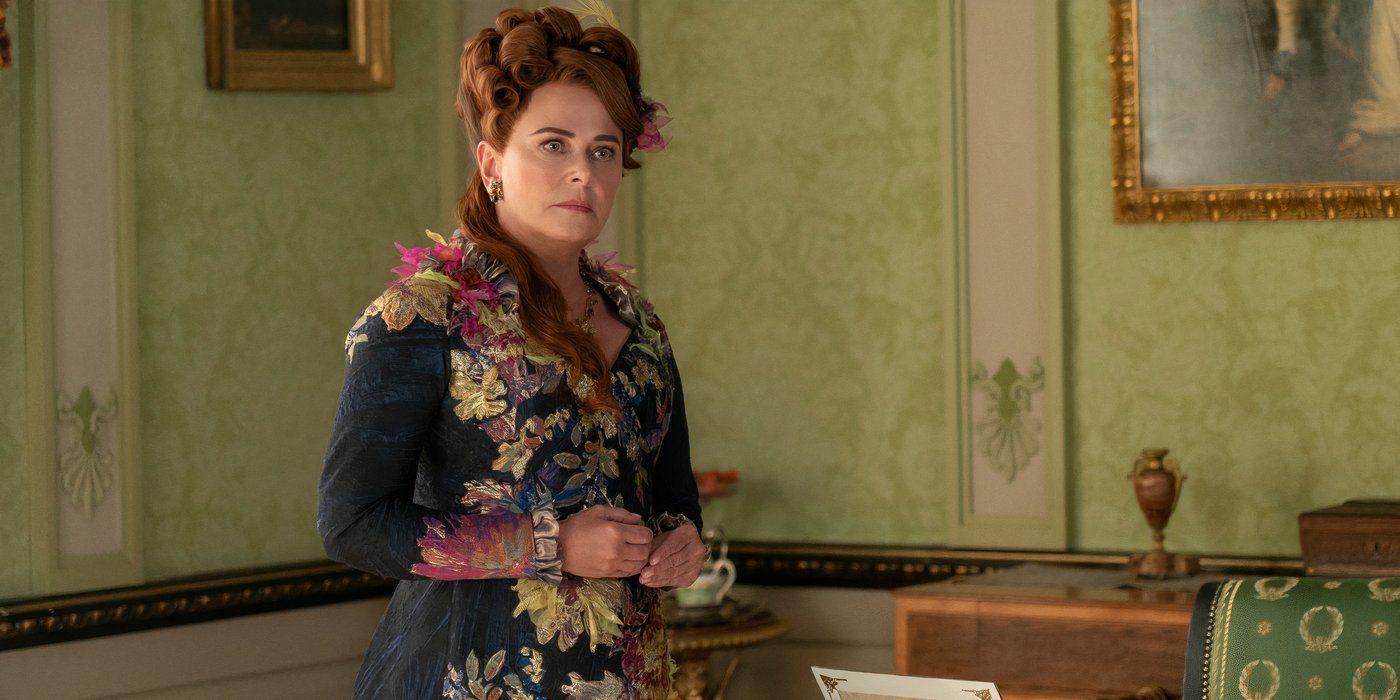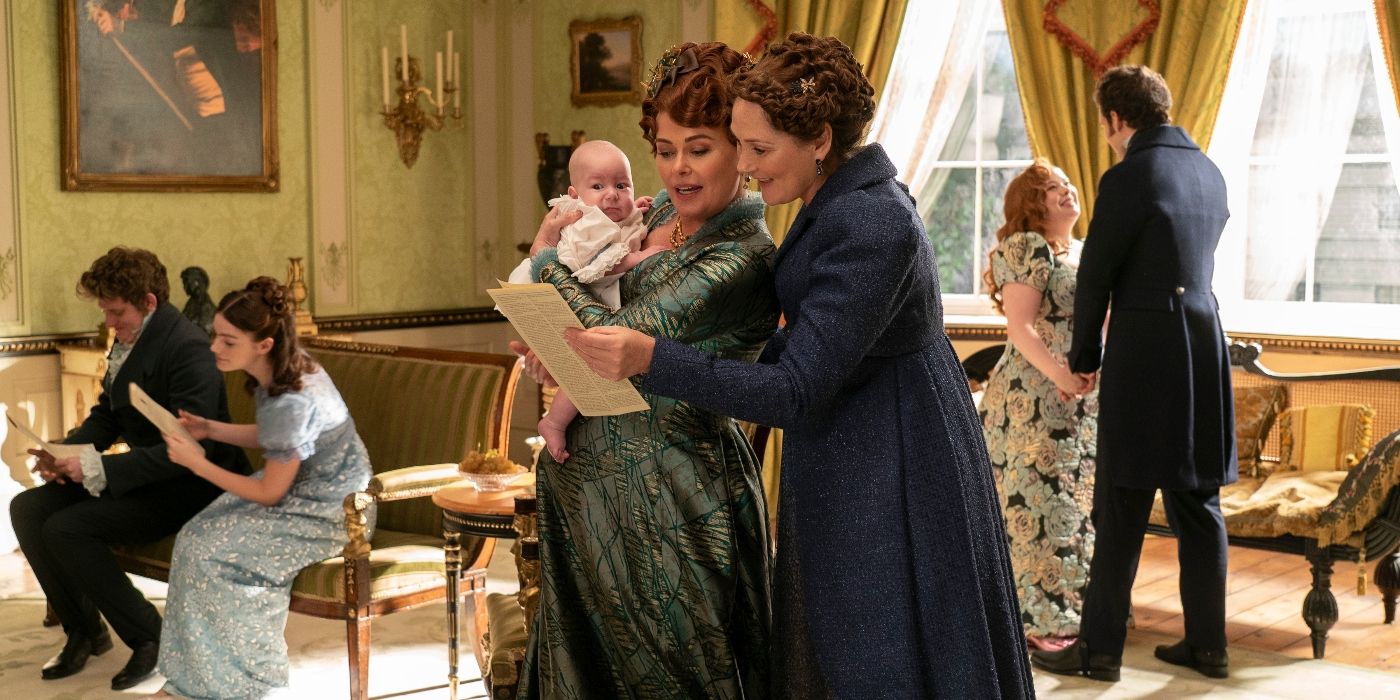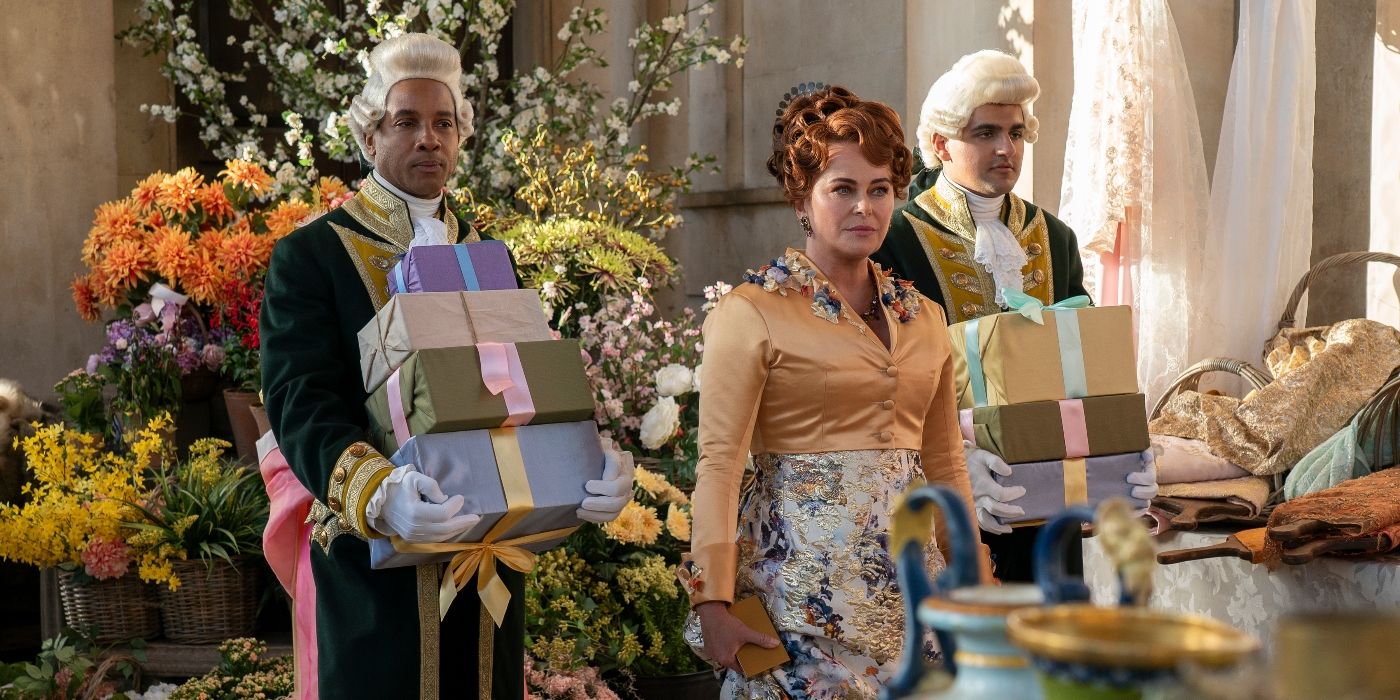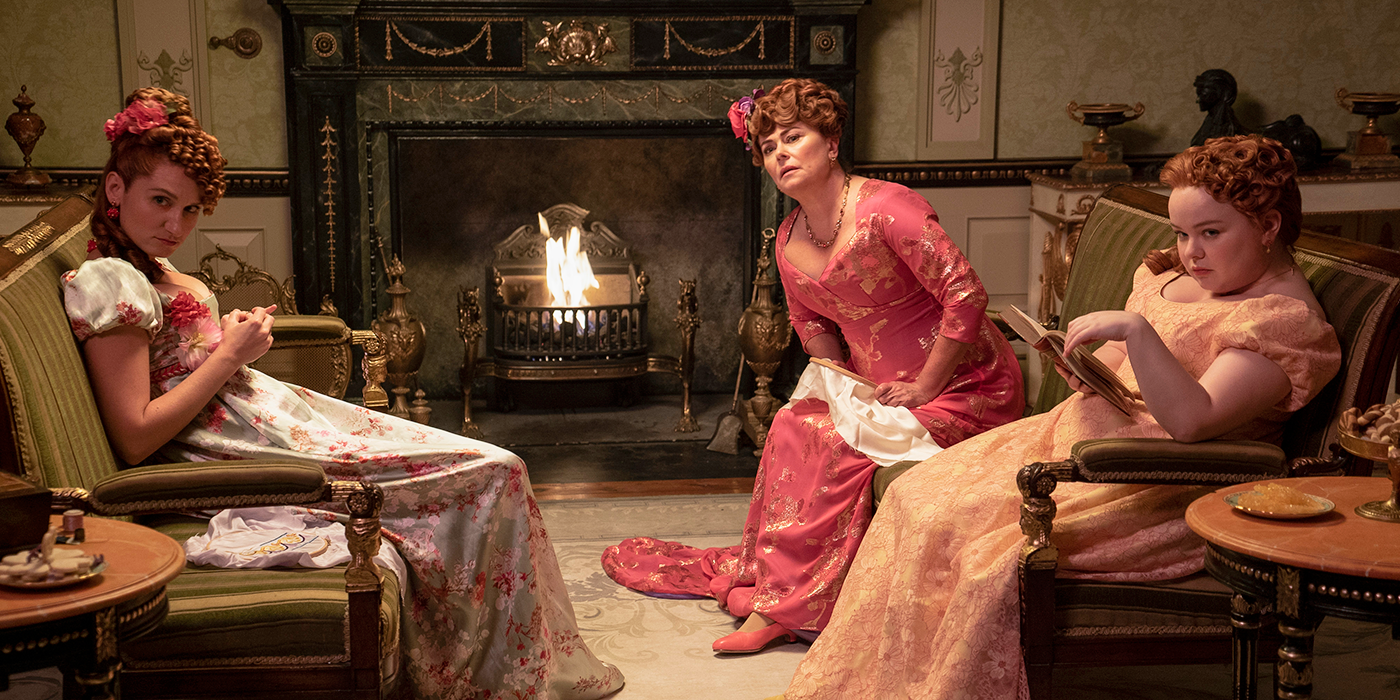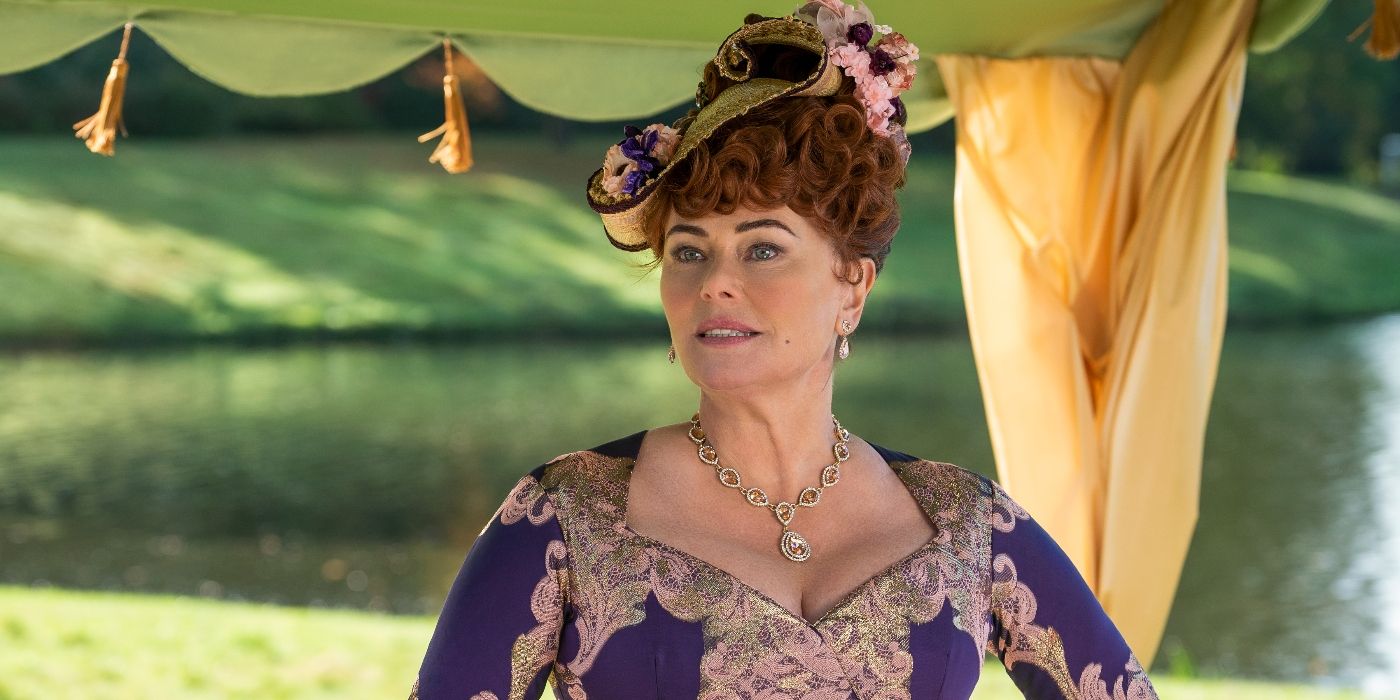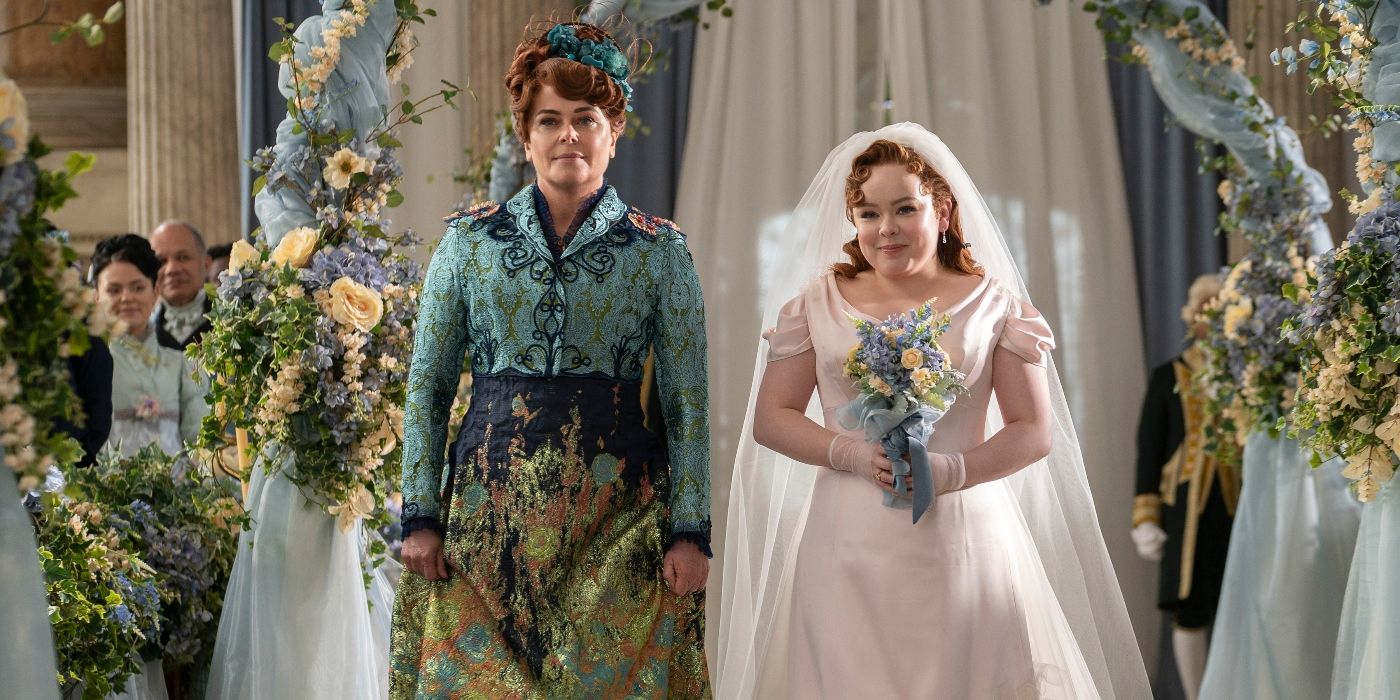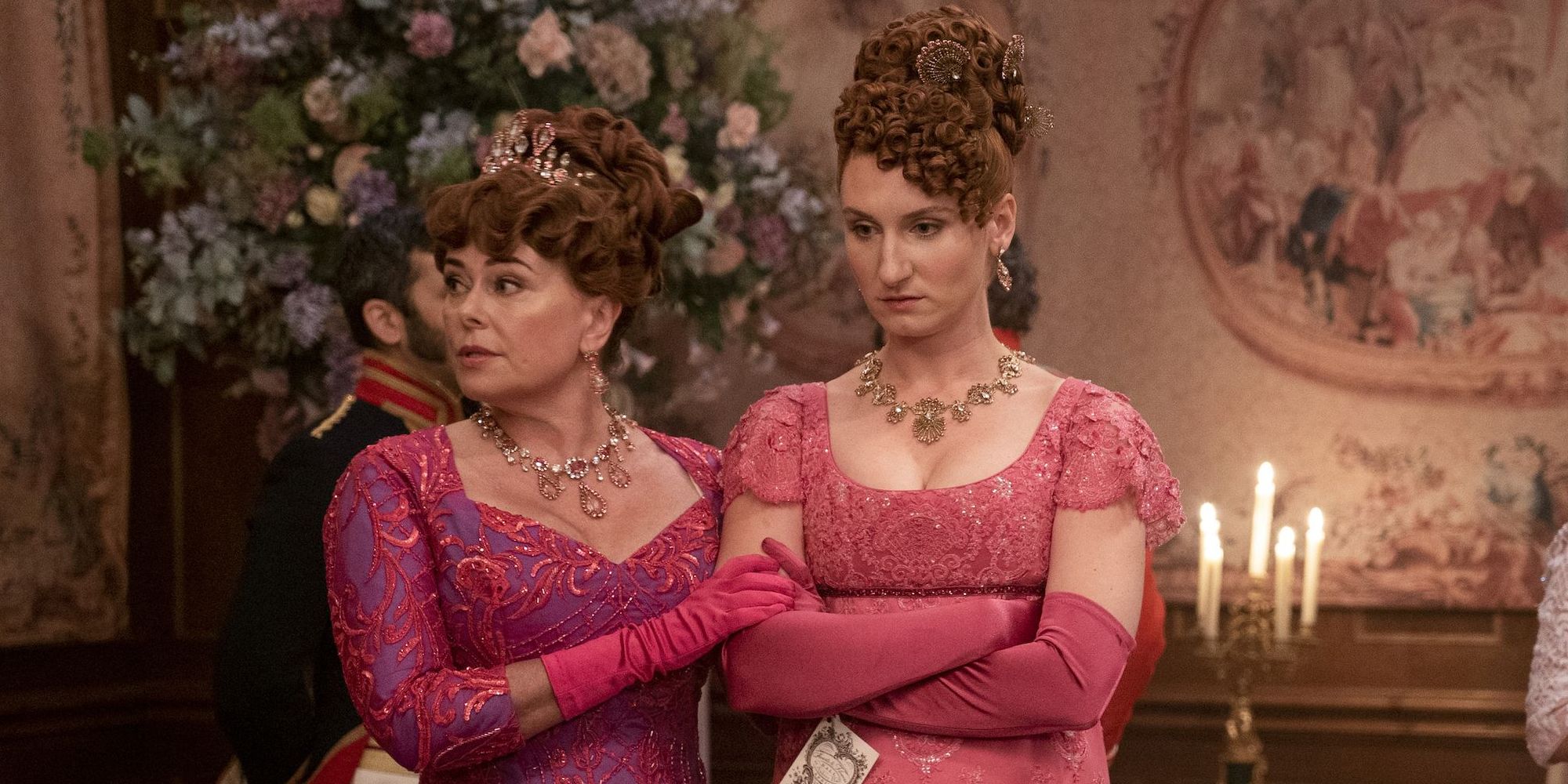
- Netflix’s Bridgerton Season 3 shines a spotlight on the underappreciated Featherington family dynamic.
- The show fleshes out characters like Portia and the sisters, adding depth and heartwarming storylines.
- Season 3 brings Penelope and Portia closer, highlighting their complex mother-daughter relationship in an unexpected way.
As Bridgerton revolves around the siblings of the titular family, the show boasts another storyline that turns out to be more heartwarming and poignant than we could ever have imagined in Season 3. The Featherington household’s drama has been churning on the back burner for the past two seasons, throwing out a fan-favorite character as well as some severely underappreciated ones. Season 3 reserves more screen time for the Featheringtons, gradually bringing their flourishing dynamics to the forefront and delivering an unexpected scene in the finale between mother and daughter. Considering these characters were barely even in Julia Quinn’s novels of the same name, Netflix has done a dazzling job with fleshing out their characterizations and motivations, allowing them to thrive in this jam-packed season.
The Featherington Storyline Is Sparse in the ‘Bridgerton’ Books
The Bridgerton novels kept the Featherington family on the sidelines, with only Penelope (Nicola Coughlan) making any real traction in the story. Though their story was sparse, Netflix has managed to weed out important details of their characters and create a lively background for them to thrive in the series. The entire inheritance plot and the family’s financial difficulties are non-existent in the book, with Lord Featherington still being alive and kicking, though he is not really involved in the storyline. There is no inheritance scheme in which Phillipa (Harriet Cains) and Prudence (Bessie Carter) are pitted against each other in a race to become pregnant with a son, a race that Penelope ultimately wins in the series. This race becomes the source of comedy for Bridgerton Season 3, resulting in the invaluable discussion around how intimacy is performed, which also leads to Portia’s (Polly Walker) increasing frustrations and worries. As such, in the books Portia is not concerned with the family’s finances like in the series, and instead, is simply another caricature of a Regency mother prowling the marriage mart for acceptable suitors who would be willing to marry her daughters.
While the Netflix series fortunately gives more attention to the Featherington storyline, it also removes an entire sister from the Featherington family tree. In Quinn’s novels, Penelope also has a younger sister, Felicity, who would have been around Hyacinth Bridgerton’s (Florence Hunt) age. Felicity was integral to Penelope and Colin’s (Luke Newton) love story, as Portia had initially set up Felicity to be married to Colin. Like in the series, Portia had written Penelope off as a lone spinster who would grow up taking care of her mother, and thus, her maternal efforts were poured into Felicity’s eligibility. However, when Colin comes over to ask for Penelope’s hand in marriage, Portia accepts, eager to have any association with the respected Bridgerton name at all, especially since her older daughters had already been married off. Interestingly, one was to Season 1’s Nigel Berbrooke (Jamie Beamish), though he was more irritating in the books rather than the slimy character he was in the series.
Portia Featherington Is Given a Backstory in Netflix’s ‘Bridgerton’
One of the major deviations from the Featheringtons in the book is the characterization and backstory of Portia, the matriarch of the household. In a series filled with powerful women and inspiring matriarchs, Portia is often forgotten and underappreciated, mainly because of how much she is villainized in the earlier seasons. Season 3 finally softens her story, allowing her cold and calculating demeanor to drift into the territory of grit, determination and resourcefulness. She finally gets the recognition and sympathy she deserves in this season, as Penelope finally realizes that for all her mother’s wile and cunning, she had good intentions.
The novels never really allowed this fierce quality to enter the character of Portia, as she was reduced to just another overbearing mother trying to achieve higher status and social regard through advantageous marriages for her daughter. Her character never really extends beyond this archetype, even when she finds herself in a rivalry with another lady over a maid in the books, a subplot that simply cements her interest in trivial social quarrels. Our beloved Netflix character, however, does not have a husband to financially support her, and we discover that the husband she did once have wasn’t able to either. It is her singular conniving efforts that allowed the Featheringtons to stave off poverty and retain any social standing in the ton, allowing them to be eligible for a decent marriage. Though her methods were less than savory, she was critically resourceful, managing to single-handedly sustain her family while navigating the restrictions placed on women at the time. As such, her shady dealings with Cousin Jack (Rupert Young) don’t seem as bad, especially since she had manipulated her way into removing his tyranny from their lives.
